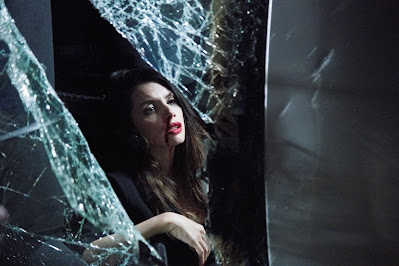When we last saw the Italian giallo maestro Dario Argento, that
grandmaster of horror behind such revered classics as The Bird with the Crystal Plumage, Suspiria and Tenebrae, he hit a creative rock
bottom with the misbegotten 2012 Dracula 3D film. While the years since saw renewed interest in
the director’s oeuvre followed by a controversial remake of his most beloved
title Suspiria, creatively speaking Argento more or less retired from film
directing altogether after the disastrous critical and commercial release of
his 3D film which made the maestro’s output look amateurish.
Then COVID hit and the director’s friend, fellow French provocateur
Gaspar Noe, suffered a near-fatal brain hemorrhage which spawned that director’s
most respectable film to date, the dementia drama Vortex. In it, Dario Argento in his first leading
role as an actor plays an elderly husband living with his wife who begins succumbing
to dementia, meanwhile Argento’s character gradually begins developing
respiratory problems.
--Andrew Kotwicki





